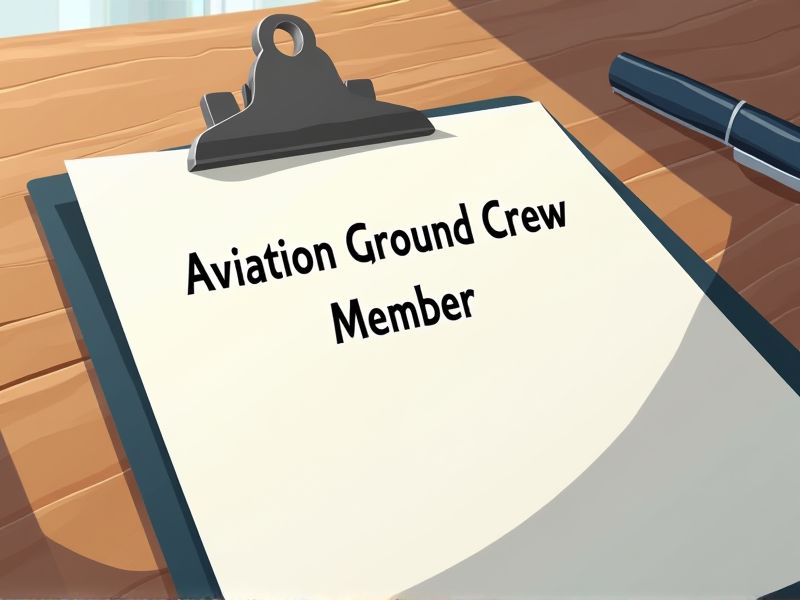
Aviation ground crew members face numerous responsibilities, including aircraft maintenance and operational safety, which necessitate specialized training. Certifications ensure personnel meet industry standards, enhancing both efficiency and safety. Regulations and technological advancements in aviation demand updated knowledge and skills. Several key certifications are typically required for aviation ground crew members to perform their duties effectively.
Airport Ramp Safety Certification
Airport Ramp Safety Certification is crucial because it ensures that aviation ground crew members have the necessary knowledge to prevent accidents on the ramp. Training leads to a standardized understanding of safety protocols and procedures, reducing the risk of human error. With certification, the crew is better equipped to handle unexpected situations, enhancing overall operational efficiency. Increasing safety measures can lower insurance costs for airlines while improving the trust and reliability of services offered to passengers.
Aircraft Marshalling and Ground Handling Certification
Aircraft marshalling and ground handling certification ensures ground crew members have the necessary skills to safely guide and communicate with aircraft during ground operations, which reduces the risk of accidents and collisions. The certification provides a standardized set of procedures, promoting consistent communication and coordination among crew members, enhancing operational efficiency. Having certified crew members reassures airlines and airports about the competence and professionalism of their ground operations, potentially improving their overall reputation and reliability. Regulatory bodies and insurance companies often require such certifications to ensure compliance and manage liability, reducing financial risks for aviation operators.
Hazardous Materials (HAZMAT) Handling Certification
Possessing a HAZMAT Handling Certification is crucial for aviation ground crew members as it ensures knowledge of safe handling procedures for dangerous goods, minimizing accidents. This certification ensures compliance with regulations set by aviation authorities, fostering a safer work environment. Certified workers are trained in emergency response techniques, which can significantly reduce the impact of potential incidents. The certification also enhances operational efficiency by ensuring materials are handled and transported correctly.
Aircraft Fueling Operations Certification
Aircraft Fueling Operations Certification ensures that ground crew members handle fuel safely, reducing the risk of accidents. It equips personnel with knowledge on proper procedures, which can lead to improved efficiency in fueling operations. Certification aligns with industry standards, promoting best practices within the aviation sector. It also contributes to environmental protection by minimizing fuel spills and associated contamination risks.
Aviation Safety and Security Certification
Aviation safety and security certification ensures ground crew members have the necessary knowledge and skills to handle complex and potentially hazardous operations, reducing the risk of accidents during aircraft ground activities. Certified training equips crew members to effectively identify and mitigate security threats, safeguarding passengers, assets, and infrastructure. Regulatory bodies and airlines require credentials to uphold industry standards and insurance requirements, protecting both the workforce and the carrier's integrity. Certified staff demonstrate a commitment to safety and security, enhancing public and stakeholder trust in aviation operations.
First Aid and CPR Certification
Ground crew members often encounter emergency situations, such as passenger health issues, where First Aid and CPR skills are crucial for immediate response. Quick, competent action can stabilize a situation until professional medical help arrives, potentially saving lives. Knowledge of First Aid also helps in managing workplace injuries, reducing long-term consequences and downtime. Certification in these skills reassures passengers and staff of the crew's preparedness and commitment to safety.
Emergency Response and Evacuation Certification
An Emergency Response and Evacuation Certification equips aviation ground crew members with critical skills to handle crises, directly impacting passenger and staff safety by reducing the potential for harm during emergencies. Without certification, ground crew may lack the necessary knowledge to effectively manage high-pressure evacuation situations, potentially escalating chaos and risking lives. Regulated training ensures compliance with international aviation safety standards, which in turn affects airline reputations and operational licenses. Certification programs keep crew members updated on evolving safety protocols, influencing the overall efficiency and effectiveness of emergency responses.
Baggage Handling and Ramp Operations Certification
Baggage Handling and Ramp Operations Certification ensures ground crew members are well-versed in safety protocols, reducing the risk of accidents during aircraft loading and unloading. Proper certification equips personnel with the skills necessary to efficiently manage tight schedules, improving overall flight punctuality. The certification training teaches best practices in equipment handling, minimizing damage to passenger luggage and aviation assets. Certification fosters consistency and compliance with international aviation standards, enhancing operational reliability and safety.
Load Control Procedures Certification
Load Control Procedures Certification is crucial because it ensures ground crew members understand weight and balance calculations, which are vital for aircraft safety. Accurate load control prevents uneven weight distribution that can lead to structural stress or in-flight instability. It also standardizes procedures, reducing the risk of human error in fast-paced airport environments. Certification guarantees that crew members have the necessary skills and knowledge to manage complex logistics efficiently.
Fire Safety and Prevention Certification
Fire Safety and Prevention Certification is crucial for aviation ground crew members because it equips them with the skills to manage hazardous situations on the tarmac effectively. Without proper training, the risk of accidents increases, compromising personnel safety and the integrity of aircraft. Certified crew members can quickly identify potential fire hazards, thus minimizing delays and ensuring continuous airport operations. A certified ground crew enhances overall airport safety compliance, aligning with stringent aviation industry standards and regulations.
Summary
When you obtain certifications as an Aviation Ground Crew Member, your employability and job security often increase due to enhanced credentials. Employers frequently recognize certified professionals as more skilled and knowledgeable, leading to greater trust and responsibilities. Certification may lead to higher pay and opportunities for career advancement because it distinguishes you from non-certified peers. Operational safety and efficiency on the ground improve as you apply advanced techniques and standards learned through certification.
